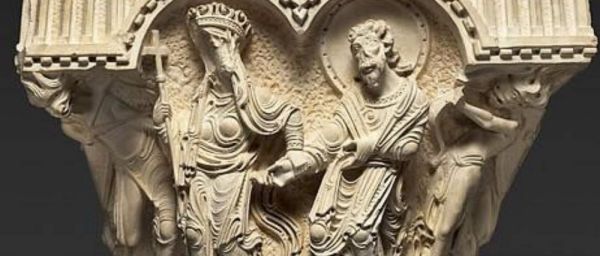Full dedication, but for a crossing of our own
(Mt 8:18-22)
Jesus wants us to give new space to His Word; that by listening to Him, we allow Him to speak. And through our choices, that He becomes meaningful again.
His Word is demanding, but it frees us from ballasts, from mental cloaks that solidify in time and in our heads. Our real overburden.
The Sequela is simple but not facile. Easy, after all; in the gratuitousness of deep and immediate attunement, without external filters.
Continuing to venerate securities, landmarks and habits does nothing more than manage a world of the dead (v.22).
He who welcomes Christ opens himself to a Newness - splendid but risky - that he does not know.
The believer must take into account that we are all called to make tiring crossings to other shores (v.18) than the usual ones.
To overcome this insecurity and natural fear, initial enthusiasm is not enough.
In view of the hard times of evangelisation, it is good for the child of God to understand his own strengths or inclinations - and whether they are capable of leading him to the point of transgressing indispensable ties, family interests, "sacred" duties (v.21).
This is to allow new modes of expression and pastoral forms to emerge and flourish. Not by effort and 'resilience'.
It is useless to continue spending one's life propping up dead branches, keeping up sophisticated ideas or traditions, even if they are well established, squandering attention and energy to support things that have no future (v.22).
How do we find energy within ourselves when we are, for example, hindered and despised?
From the earliest times the Risen One was not identified as a mere model of hardship and humiliation, to be "imitated".
The Lord was a non-exterior motive and an (all-intimate) engine of new life. This is the point.
In religions only one "matter" is taught: the story and style of the Founder, who makes you learn splendid "notions" and heroic deeds.
In the spirituality of the Passage in Christ to other shores [v.18] one can only be in synergy with the Source that gushes within.
Growth will be true to one's Seed. Flowering will be commensurate with one's Roots and the flowing of the Sap, not with the prominence of the leaves.
In the adventure of Faith our Core generates us and brings us into relationship with ourselves, others and things, in the most diverse way.
Love is spontaneous and risky; it never has the outline of standard mechanisms.
In the following of the Lord, there is sobriety, yet there is a lack of predetermined patterns. As in Friendship: it too is "unsafe", but there is a Source.
So one does not waste one's life embalming graveyard chimeras, or chasing other people's ideas, disembodied fantasies, (or dehumanising violence) fashionable, which crumble us inside.
It is the personal unseen that in our travails continues to convey creative joy - and makes us take to the field, to remain qualitative and profound.
The lack of imposed binaries - typical of religions - teaches the Road of spontaneity that opens astounding breaches.
Nature itself recovers opposites and sides in the shadows, or shaky, considered superfluous.
Here we tap into the genuineness of our particular essence, transparently and uncontaminated by cerebral or customary taboos.
Discovering it to be more multifaceted than we thought.
Moving away from obvious judgements (and getting along with the mannerisms around) we are introduced to the Free Way of vocational independence and richness.
Under the action of the Spirit, it will be in real danger that each one will finally access the mystical dimension of the Sequela.
We will do so with polish and to the point of building the unthought-of completeness and Happiness for self and all.
Sometimes we, too, keep asking ourselves whether that Path we are treading is actually "ours".
And perhaps we continue to feel the vertigo or fear of the constant crossings - of a task too great, for such an inferior 'I', incapable of constant, recognised performance.
But right here, without scaffolding, personally encountering the Lord, we perceived and felt with our whole being his subtle Appeal:
"Do not forsake thyself: Me in thee".
To internalise and live the message:
What made you decide for the crossing? How did you leave everything or opinions behind?
Where do you share the hardship and joy of the intense and personal apostolate (e.g. in the cloister) or of the new evangelisation (e.g. among the slums)?
Do you do your utmost for the education of young people with varied training, and the action of dialogue and listening to those far away?
How do you approach the hardships and shady areas that you do not expect? Do you return to the reassuring den and nest?












